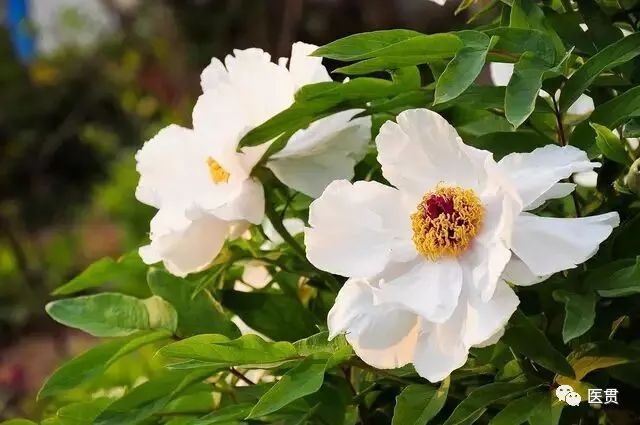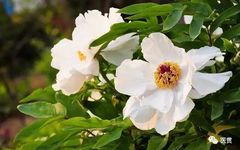Regarding the contraindications of Ma Huang Tang (Ephedra Decoction), Zhang Zhongjing discussed it from nine aspects, hence the name: “Nine Contraindications of Ma Huang Tang”.
Firstly, in the “Shang Han Lun” (Treatise on Cold Damage), section 49 states: “The pulse is floating and rapid; the treatment should induce sweating for recovery. If purged, and the body feels heavy with palpitations, sweating should not be induced; it should be resolved by spontaneous sweating. The reason is that the pulse at the chi position is weak, indicating deficiency within. The exterior and interior must be solid, and the fluids must be harmonized for spontaneous sweating to occur and recovery to happen.” This passage emphasizes the weak pulse at the chi position indicating “deficiency within”. The chi position reflects the kidney and the Mingmen (Gate of Life); a weak pulse here indicates insufficient kidney essence and declining Ming fire. Due to the lack of Ming fire energy, it cannot circulate the vital energy, leading to a heavy body and palpitations, as the Ming fire is the root of heart fire. Insufficient Ming fire results in weakened heart yang, causing palpitations. Ma Huang Tang is a medicine that promotes yang energy and induces sweating; if used in cases of yang deficiency, it will inevitably lead to the loss of yang and exhaustion, thus this is one of the contraindications of Ma Huang Tang.
Secondly, section 50 of the “Shang Han Lun” states: “The pulse is floating and tight; the treatment should relieve body pain through sweating. If the pulse at the chi position is slow, sweating should not be induced. How do we know this? It is due to insufficient ying qi and blood deficiency.” This passage emphasizes that a slow pulse at the chi position indicates “insufficient ying qi and blood deficiency”. Ma Huang Tang primarily functions to induce sweating, and sweating and blood are different flows from the same source, with the potential for mutual transformation. If ying and blood are already insufficient, inducing sweating will further deplete blood, leading to greater deficiency of ying and blood, thus violating the principle of “deficiency upon deficiency”. Therefore, in cases of insufficient ying and blood, Ma Huang Tang should not be used; this is the second contraindication of Ma Huang Tang.
Thirdly, section 83 of the “Shang Han Lun” states: “If the throat is dry, sweating should not be induced.” The throat is the gateway of the lungs and stomach, and the meridians of the liver and kidneys also circulate around the throat. Dryness in the throat indicates insufficient fluids in the lungs, stomach, liver, and kidneys. In such patients, if they suffer from an external pathogen, Ma Huang Tang should also not be used, as inducing sweating would further deplete their fluids; thus, this is the third contraindication of Ma Huang Tang.
Fourthly, section 84 of the “Shang Han Lun” states: “In cases of dysuria, sweating should not be induced, as it will lead to hematuria.” Dysuria is caused by heat burning the bladder. Prolonged dysuria can severely damage the yin fluids of the bladder and kidneys. Ma Huang Tang, being a warming and sweating agent, if used in cases of dysuria, will exacerbate the heat and further deplete the yin. Extreme yin deficiency will affect the blood, and excessive heat will cause blood to flow uncontrollably, leading to hematuria. Therefore, even if a patient with dysuria has an external pathogen, Ma Huang Tang must be strictly prohibited; this is the fourth contraindication of Ma Huang Tang.
Fifthly, section 85 of the “Shang Han Lun” states: “In cases of sores, even if there is body pain, sweating should not be induced, as sweating will lead to spasms.” Long-standing sores will inevitably lead to pus and blood loss, severely damaging the yin. The formation of sores is due to the heat toxin burning and corroding the muscles and flesh. In such cases, with depleted fluids and excessive heat, how can Ma Huang, a warming and sweating agent, be used? Ma Huang is hot like fire, and inducing sweating will lead to a torrential loss of fluids, causing extreme heat to generate wind, leading to spasms. Therefore, patients with sores must not use Ma Huang; this is the fifth contraindication of Ma Huang Tang.
Sixthly, section 86 of the “Shang Han Lun” states: “In cases of epistaxis, sweating should not be induced, as sweating will cause the forehead to sink, the pulse to be rapid and tight, and the patient will be unable to sleep.” The term “epistaxis” refers to individuals who frequently suffer from hemorrhagic diseases. Those who frequently lose blood will inevitably have severe yin and blood deficiency. When yin and blood are deficient, fire will become excessive. The treatment should focus on nourishing yin and blood to harmonize yang. However, Ma Huang Tang is both warming and induces sweating; if used in cases of epistaxis, it will further deplete yin and blood, leading to excessive fire and potential harm to the bones and muscles, causing blood to dry up and fluids to be depleted, resulting in internal wind and loss of spirit, which can be dangerous. Therefore, Ma Huang Tang must not be used in cases of epistaxis; this is the sixth contraindication of Ma Huang Tang.
Seventhly, section 87 of the “Shang Han Lun” states: “In cases of blood loss, sweating should not be induced, as it will lead to chills and tremors.” Blood loss refers to individuals who frequently experience bleeding or significant hemorrhage. This is similar to the epistaxis cases in terms of etiology and pathogenesis, but these patients may not necessarily have “excess heat”; they often have qi deficiency leading to inability to contain blood, or excessive blood loss at once, leading to the loss of yang with the depletion of yin, and qi escaping with the blood. Although Ma Huang Tang should not be used, as sweating is a yang energy that evaporates yin blood, using Ma Huang Tang, a strong sweating agent, will inevitably lead to the loss of yin blood and the escape of yang, resulting in cold chills and tremors. This is the seventh contraindication of Ma Huang Tang.
Eighthly, section 88 of the “Shang Han Lun” states: “In cases of excessive sweating, if sweating is induced again, it will lead to confusion and heart disturbance, with painful urination.” Excessive sweating refers to individuals who sweat profusely due to weak wei yang that cannot be contained, leading to constant fluid loss. Those who sweat excessively often have both qi and yin deficiency; as sweating occurs, yang energy escapes. Even if these patients suffer from wind-cold external pathogens, they should not induce sweating again. Especially since Ma Huang Tang is a strong sweating agent, its effects on robust individuals can lead to profuse sweating; how much more so for those with both qi and yin deficiency! If used, it will not only lead to depletion of yin fluids but also easily cause the loss of heart and kidney yang energy. With weakened heart and kidney yang, yin blood will dry up, leading to confusion and heart disturbance, and the spirit will be unsettled. This will result in “confusion and heart disturbance” and painful urination due to the inability to nourish the water pathways. This is the eighth contraindication of Ma Huang Tang.
Ninthly, section 89 of the “Shang Han Lun” states: “If the patient has cold, and sweating is induced again, the stomach will be cold, leading to vomiting of roundworms.” This passage discusses another type of contraindication for Ma Huang Tang, namely those with internal deficiency and cold. Even if fluids are not depleted and yang is not excessive, Ma Huang Tang should not be used to induce sweating. Although Ma Huang Tang is a warming agent, it is not a medicine that warms the middle and benefits yang. The warming properties of Ma Huang and Gui Zhi (Cinnamon Twig) are meant to disperse the exterior; however, this dispersing action can easily cause the body’s righteous yang to escape. Therefore, Ma Huang Tang has the potential to cause “the body to feel like burning charcoal, sweating and dispersing”. For those with a constitution of yang deficiency, cold will arise from within, and cold dampness will not transform. They should only use sweet warming herbs to restore yang; they must not induce dispersing actions. If mistakenly used, it will lead to further deficiency of middle yang, increased cold, and internal cold will lead to discomfort, making it easy to cause vomiting of roundworms. This is the ninth contraindication of Ma Huang Tang.
The above nine contraindications for the application of Ma Huang Tang are referred to as the nine prohibitions of Ma Huang Tang. They mention the weak pulse at the chi position, the slow pulse at the chi position, dry throat, prolonged dysuria, chronic sores, frequent blood loss, excessive sweating, and inherent yang deficiency. In summary, they can be encapsulated in the eight characters: deficiency within, internal cold, fluid depletion, and blood deficiency. Deficiency within generally refers to insufficient essence of the five organs, including those who are weak after prolonged illness or major diseases. Such individuals should not hastily use Ma Huang Tang for external pathogens, as it will further deplete their righteous qi with sweating, leading to prolonged recovery. Internal cold generally refers to individuals with insufficient yang energy and declining Mingmen fire. When yang is deficient, internal cold arises, which is not limited to cold conditions in the middle jiao, but often manifests in the spleen and stomach, such as cold pain in the heart and abdomen, poor digestion, loose stools, or cold extremities. Therefore, Zhang Zhongjing uses “cold in the stomach” to describe it. Individuals with yang deficiency should avoid pungent dispersing medicines, as dispersing will scatter yang energy, hence Ma Huang Tang must not be used. Fluid depletion generally refers to individuals with insufficient internal fluids, where water is dried up. Causes of fluid depletion include excessive sweating, vomiting, or diarrhea. Insufficient fluids cannot nourish the organs and tissues, nor can they transform into blood. Such patients may experience dry mouth and throat, dry stools, or dry skin and weight loss. In cases of external pathogens, sweating medicines should be avoided, and Ma Huang Tang, being a strong and forceful agent, must be strictly prohibited. Blood deficiency refers to individuals with insufficient blood. Qi is the root of life, and blood is the source of life. Those with insufficient blood are not only weak but also prone to many diseases. There are various causes of blood deficiency, but insufficient qi is the fundamental cause of blood deficiency, as qi can transform into blood, and fluids can transform into blood. Therefore, those with blood deficiency should avoid sweating agents. There is a saying: “Do not sweat if blood is lost, do not lose blood if sweating occurs”. If blood is already deficient, inducing sweating again, especially with strong sweating agents like Ma Huang and Gui Zhi, is akin to drawing water from a dry well or breaking a dam in a dried-up marsh!
In summary, Ma Huang Tang is a strong agent in the method of inducing sweating, with a fierce and vigorous nature. Ma Huang opens the pores and activates the channels, moving like a bamboo shoot; Gui Zhi penetrates the skin and muscles, unblocking the meridians, sweeping away all obstacles; Xing Ren (Apricot Kernel) promotes lung qi and opens the skin like thunder striking an iceberg. For those who are weak, the harm is immense! Although there is the moderating effect of Gan Cao (Licorice), it is difficult to resist the overwhelming force of the rushing tide. Its sweating is like flowing water, and its dispersing action is like wind sweeping away the remaining clouds. If used improperly, in an instant, fluids will be lost, yang will escape, blood will dry up, and qi will be exhausted. Therefore, Zhang Zhongjing specifically pointed out the nine contraindications for the application of Ma Huang.
Ref: Chai Ruizhen. “Research on the Three Contraindications of Gui Zhi Tang and the Nine Contraindications of Ma Huang Tang” [J]. Journal of Traditional Chinese Medicine, 2011, 10(01): 9-11.

Compiled by: Man


